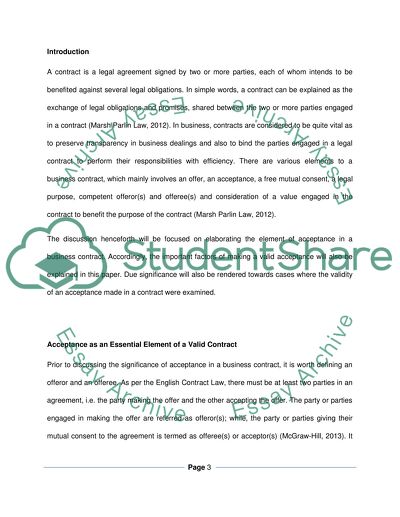Cite this document
(“Acceptance in Business Contracts Assignment Example | Topics and Well Written Essays - 2000 words”, n.d.)
Retrieved from https://studentshare.org/law/1483469-acceptance-in-business-contracts
Retrieved from https://studentshare.org/law/1483469-acceptance-in-business-contracts
(Acceptance in Business Contracts Assignment Example | Topics and Well Written Essays - 2000 Words)
https://studentshare.org/law/1483469-acceptance-in-business-contracts.
https://studentshare.org/law/1483469-acceptance-in-business-contracts.
“Acceptance in Business Contracts Assignment Example | Topics and Well Written Essays - 2000 Words”, n.d. https://studentshare.org/law/1483469-acceptance-in-business-contracts.


